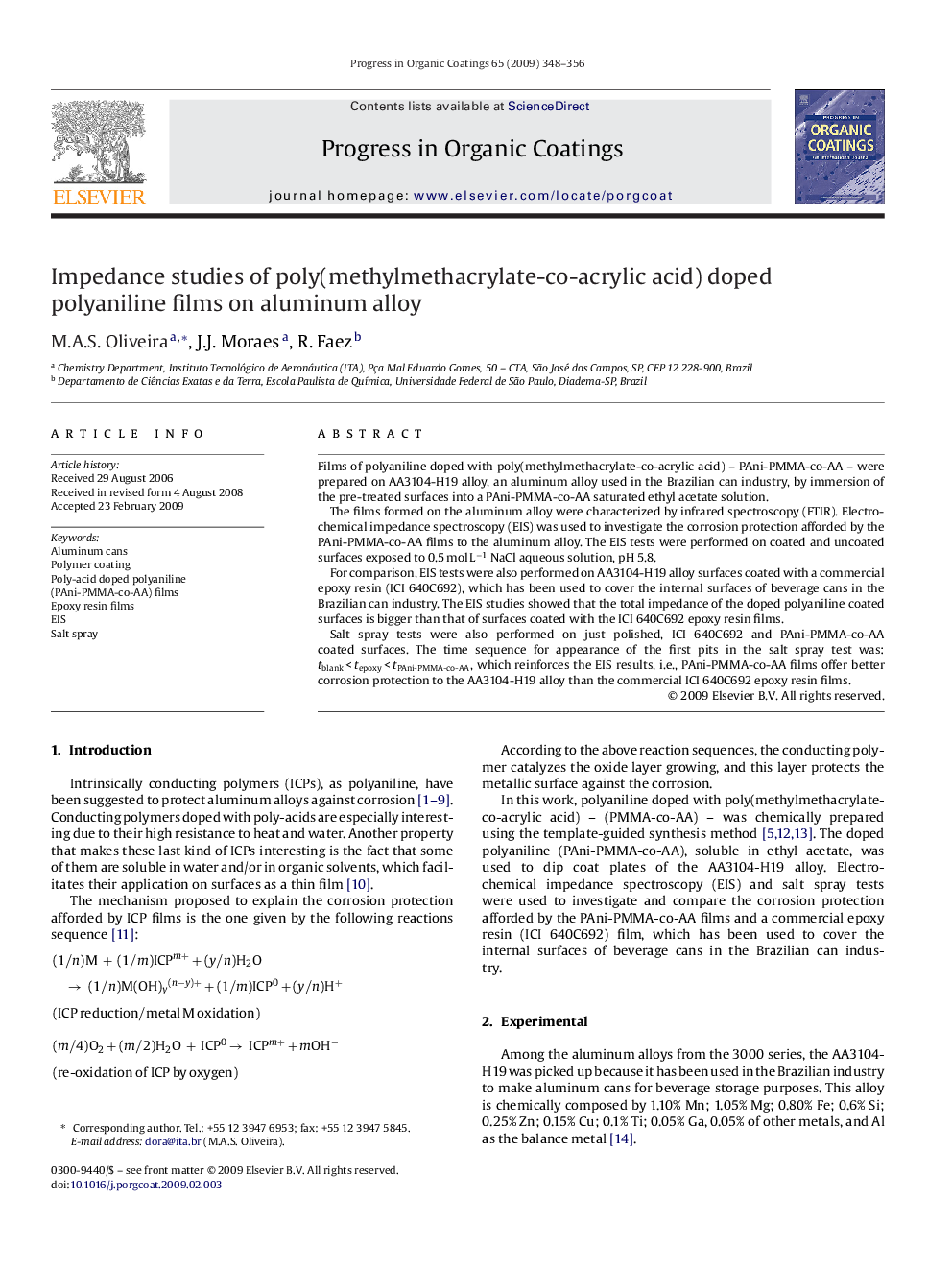| Article ID | Journal | Published Year | Pages | File Type |
|---|---|---|---|---|
| 693902 | Progress in Organic Coatings | 2009 | 9 Pages |
Films of polyaniline doped with poly(methylmethacrylate-co-acrylic acid) – PAni-PMMA-co-AA – were prepared on AA3104-H19 alloy, an aluminum alloy used in the Brazilian can industry, by immersion of the pre-treated surfaces into a PAni-PMMA-co-AA saturated ethyl acetate solution.The films formed on the aluminum alloy were characterized by infrared spectroscopy (FTIR). Electrochemical impedance spectroscopy (EIS) was used to investigate the corrosion protection afforded by the PAni-PMMA-co-AA films to the aluminum alloy. The EIS tests were performed on coated and uncoated surfaces exposed to 0.5 mol L−1 NaCl aqueous solution, pH 5.8.For comparison, EIS tests were also performed on AA3104-H19 alloy surfaces coated with a commercial epoxy resin (ICI 640C692), which has been used to cover the internal surfaces of beverage cans in the Brazilian can industry. The EIS studies showed that the total impedance of the doped polyaniline coated surfaces is bigger than that of surfaces coated with the ICI 640C692 epoxy resin films.Salt spray tests were also performed on just polished, ICI 640C692 and PAni-PMMA-co-AA coated surfaces. The time sequence for appearance of the first pits in the salt spray test was: tblank < tepoxy < tPAni-PMMA-co-AA, which reinforces the EIS results, i.e., PAni-PMMA-co-AA films offer better corrosion protection to the AA3104-H19 alloy than the commercial ICI 640C692 epoxy resin films.
